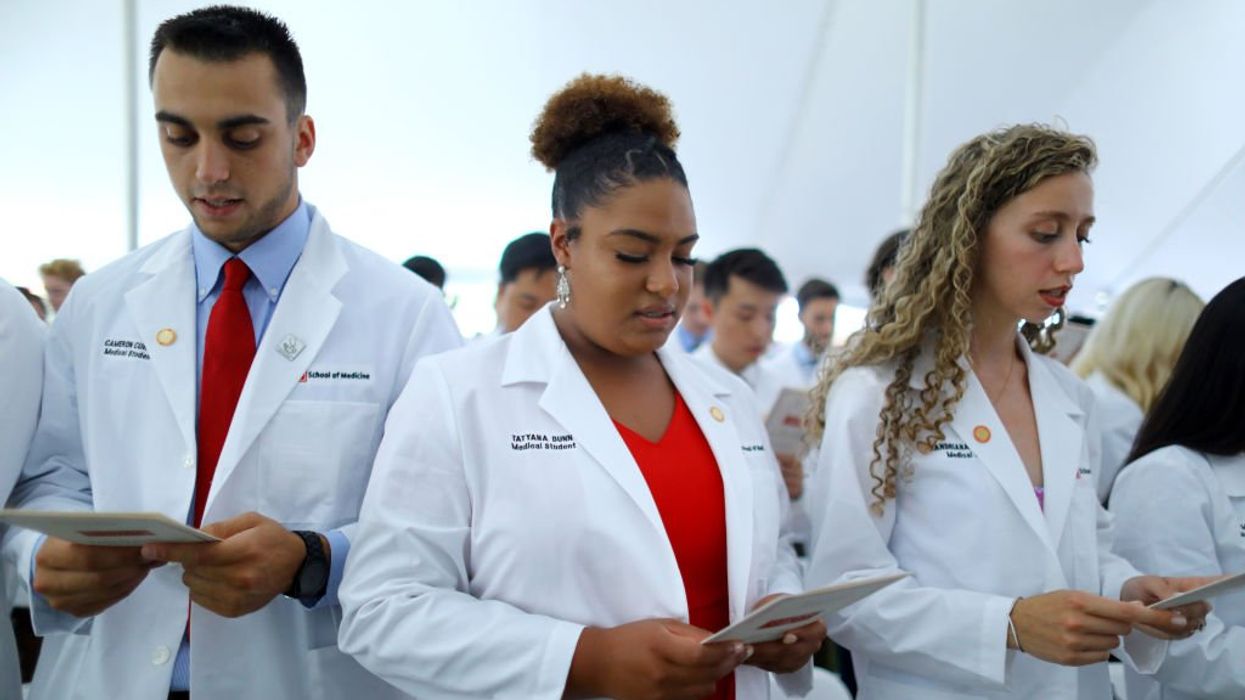
Photo by Pat Greenhouse/The Boston Globe via Getty Images

A medical school in Northern California has developed a "disadvantage scale" to select student applicants based on their "adversity scores," according to a recent New York Times report.
Dr. Mark Henderson, the associate dean of admissions at the University of California, Davis, Medical School, created the "socioeconomic disadvantage scale," also referred to as "S.E.D.," to rate applicants' adversity from zero to 99.
Student applicants are admitted into the medical school in part based on their S.E.D. scores.
Association of American Medical Colleges data revealed that over half of medical students' families earn the top 20% of income. Additionally, children of doctors are 24 times more likely than their peers to become doctors, the association reported.
Henderson hoped the ranking system, first used in 2012, would address the "staggering economic gap between medical students and the general public."
The scale analyzes students based on eight categories, including "family income, whether applicants come from an underserved area, whether they help support their nuclear families and whether their parents went to college," the Times reported.
Students whose parents were doctors received a score of zero, Henderson stated.
While students are also evaluated based on their grades, test scores, and essays, Henderson noted that there is no formula for weighing the applicant's S.E.D. score against their academic record.
The school reported that 84% of the 133 students in the most recent entering class came from "disadvantaged backgrounds," including 60% female, 42% first-generation college students, 36% Asian, 30% Hispanic, and 14% African-American.
In the wake of the Supreme Court's recent decision to abolish affirmative action, other institutes have expressed interest in adopting UC Davis' disadvantage ranking system to boost campus diversity.
According to Henderson, approximately 20 schools have contacted UC Davis to request additional information about its ranking system.
On Thursday, following the Supreme Court's ruling against affirmative action, Biden promised that his administration would create a "new standard for colleges taking into account the adversity a student has overcome."
"I'd call it class-based affirmative action," Henderson told Stat News in March. "Class struggles have a huge overlap with race — that's how we skirted the issue."
UC Davis did not respond to a request for comment, Fox News Digital reported.
Like Blaze News? Bypass the censors, sign up for our newsletters, and get stories like this direct to your inbox. Sign up here!